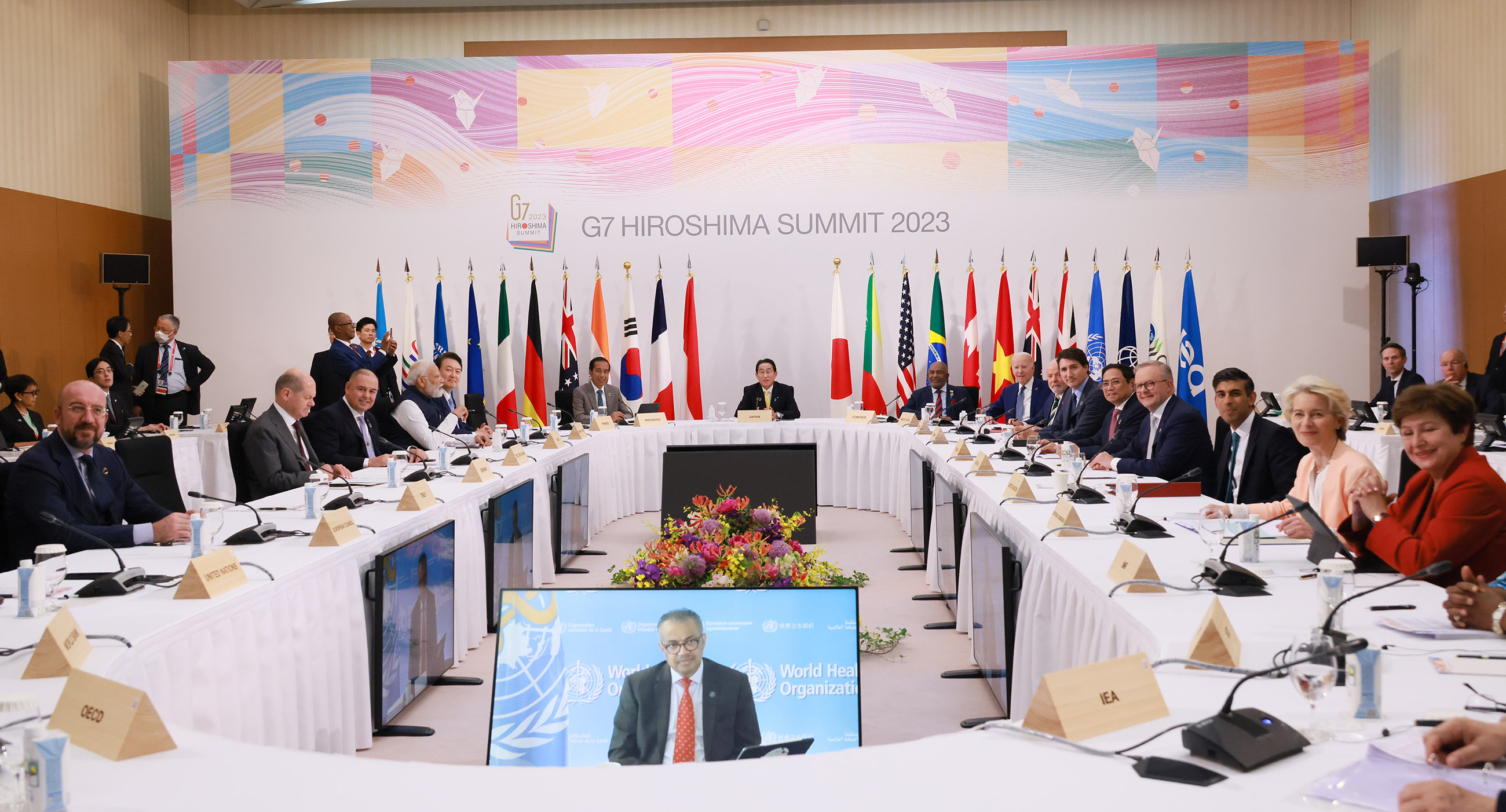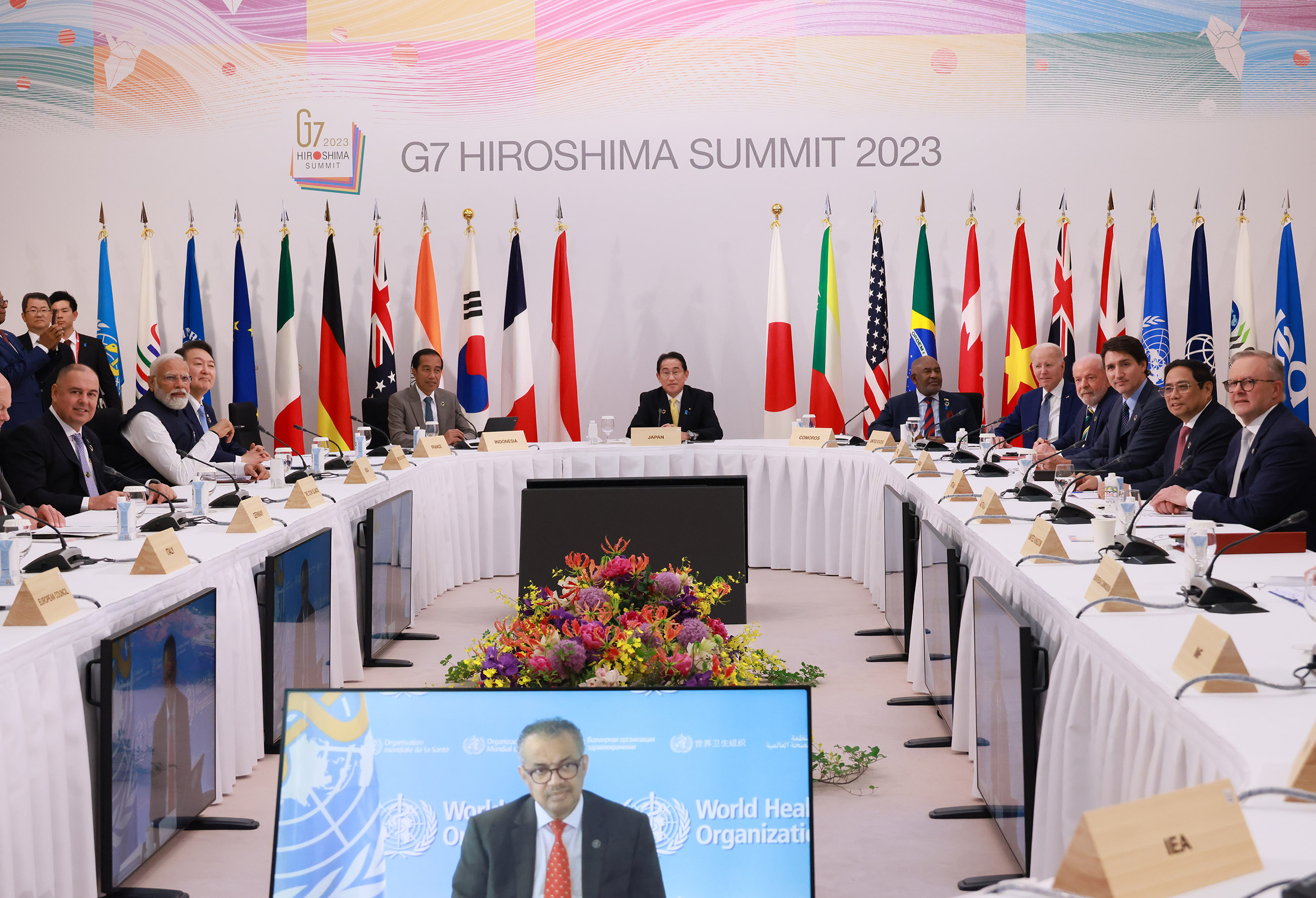G7 Hiroshima Summit Session 6 "Working Together to Address Multiple Crises" (Summary)
May 20, 2023
[Provisional translation]
On May 20, the G7 Hiroshima Summit Session 6 “Working Together to Address Multiple Crises” was held from 3:20 p.m. for 105 minutes. The G7 leaders along with the leaders of eight invited countries and seven invited international organizations discussed the issues of food, health, development and gender, among others. The overview of the session is as follows.
- Prime Minister Kishida touched upon the importance of coordinated response to multiple crises that the world is facing and the leaders of the participating countries and international organizations candidly exchanged their views.
- Regarding development, to make steady progress for the achievement of the SDGs, the participating countries and organizations reaffirmed that they will advance their efforts toward the effective use of development cooperation and the mobilization of private capital. They also expressed their expectations for promoting concrete investment under the “Partnership for Global Infrastructure and Investment (PGII)” and various reforms including the reform of Multilateral Development Banks (MDBs). Furthermore, they concurred on the importance of transparent and fair development finance and the necessity of accelerating the response to debt issues.
- With regard to food, the participating countries and organizations shaed the view that it is of urgent importance to respond to immediate food crisis and estabilish resilient food security. As a result of the discussion, the leaders of the G7 and invited countries concurred on issuing the “Hiroshima Action Statement for Resilient Global Food Security.”
- As for health, Prime Minister Kishida touched upon the importance of leader-level governance and international norm setting for structuring and strengthening the Global Health Architecture (GHA) as well as a perspective of “soft governance” as gentle coordination among existing organizations, among others. Prime Minister Kishida also explained about the launch of the MCM Delivery Partnership for equitable access (MCDP) based on the princilpes set out in the “G7 Hiroshima Vision for Equitable Access to Medical Countermeasures,” and called on the participating countries and organizations to cooperate with the partnership. After the discussion, they confirmed that they will work together and continue to advance the efforts toward the goals including the achievement of the Universal Health Coverage.
- Regarding gender, Prime Minister Kishida emphasized the importance of substantively coordinating several efforts such as promotion of “Women, Peace and Security (WPS)” agenda including disaster risk reduction, women’s economic independence and others. In response, the participating countries and organizations gave their accent to the idea.
- In addition, the participating countries and organizations confirmed that they will tackle the challenges related to trade including the WTO reform, toward the success of the 13th Ministerial Conference of the World Trade Organization.
* Eight invited countries and seven organizations are Australia, Brazil, Comoros (African Union Chair), Cook Islands (Pacific Forum Chair), India (G20 Presidency), Indonesia (ASEAN Chair), Republic of Korea, Vietnam, United Nations, International Energy Agency (IEA), International Monetary Fund (IMF), Organization for Economic Co-operation and Development (OECD), World Bank, World Health Organization (WHO), and World Trade Organization (WTO).

